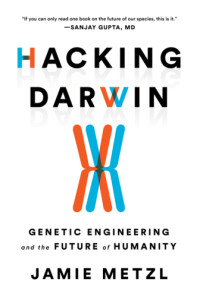
Genetic engineering: manipulating the mechanisms of life
Russ Hodge
Scientists are learning to manipulate the genes of plants and animals, changing existing organisms and creating new ones. By taking control of the mechanisms that govern heredity in other species, humans are actively directing their own evolution. Breakthroughs have come so quickly that many people find them strange and frightening. "Genetic Engineering" traces the history of genetic science up to the present day and proposes some thoughts about how it is likely to affect the future. This engaging new resource describes some of the developments in the first few years of the 21st century and how society is coping with some of the ethical challenges that accompany them. Politicians and the public are now facing tremendously important choices about how genetic engineering and its products should be used. This insightful resource helps put things into perspective and gives an idea of the risks involved in genetic engineering. Ideal for high school and college students and a much broader audience with little or no scientific background, "Genetic Engineering" tells the fascinating story of where genetics came from, what it has made possible, and where it is likely to take humankind. Chapters of this title include: From Breeding to a Science of Heredity; Classical Genetics (1900-1950); Molecular Genetics - What Genes Are and How They Work (1950-1970); The Rise of Genetic Engineering (1970-1990); Genetic Engineering in the Age of Genomes; and, Ethics and Genetic Engineering.
Categorías:
Año:
2009
Editorial:
Facts On File
Idioma:
english
Páginas:
219
ISBN 10:
0816066817
ISBN 13:
9780816066810
Serie:
Genetics & Evolution
Archivo:
PDF, 11.64 MB
IPFS:
,
english, 2009
 Amazon
Amazon  Barnes & Noble
Barnes & Noble  Bookshop.org
Bookshop.org  Convierte archivos
Convierte archivos Más resultados de búsqueda
Más resultados de búsqueda Otros beneficios
Otros beneficios 



































































































